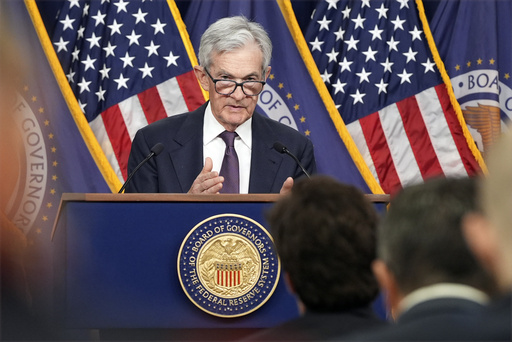
For small business owners, the new year will usher in a shift with the anticipated establishment of a more business-friendly administration in Washington. However, there are other significant changes worthwhile to monitor closely.
Among these are updates to state-level minimum wage standards and overtime regulations, the postponed federal FinCEN registration requirement, tax implications for payments received through third-party services like Venmo and PayPal, as well as factors influencing inflation, including potential tariffs.
The Small Business Administration (SBA) is also set to welcome a new leader, Kelly Loeffler, a loyalist to Trump, pending her confirmation by the Senate.
According to Karen Kerrigan, President and CEO of the Small Business & Entrepreneurship Council, the general sentiment suggests a pro-business orientation from the new administration concerning regulations. However, she also points out that there might be some intricacies concerning workplace and labor guidelines that are yet to be clarified.
With 2025 on the horizon, small business owners should remain vigilant about the following factors.
**Inflation**
Inflation continues to be a critical variable for the upcoming year. After peaking at 7.2% in June 2022, as measured by the Federal Reserve, the inflation rate has dropped to 2.3% as of October. The actions taken by the Federal Reserve and the incoming administration are anticipated to influence inflation rates significantly.
Recently, the Federal Reserve adjusted its inflation outlook for 2025, raising it from an earlier estimate of 2.1% to 2.5%. The Fed also indicated that it now expects only two interest rate cuts next year, compared to four previously anticipated. Persistent inflation coupled with high-interest rates may contribute to increased costs for both consumers and businesses alike.
On the other hand, Trump has suggested various tax reductions that include cuts on Social Security, tipped income, and overtime earnings, in addition to easing regulations. These initiatives might stimulate economic growth; however, Trump’s plans to implement tariffs on imports and his call for mass deportations could also heighten inflationary pressures.
Regardless of the outcome, inflation will remain a pressing issue for small business owners. According to Tom Sullivan, the Vice President of Small Business Policy at the U.S. Chamber of Commerce, inflation has consistently been the primary concern for small businesses over the past two and a half years.
**SBA Changes**
The Small Business Administration, established in 1953, has navigated through various administrations and plays a vital role by providing resources and overseeing small business and disaster recovery loans. Its function was especially critical during the pandemic as it aided in distributing financial assistance to small businesses.
Pending Senate confirmation, Trump has nominated Kelly Loeffler, a former U.S. Senator from Georgia, to head the SBA. She will succeed Isabella Casillas Guzman, who has been in the position since 2021. Loeffler, known for her strong allegiance to Trump, has yet to reveal any specific intentions for the SBA.
Kerrigan suggests that while significant changes within lending and related programs are not expected immediately, those developments could unfold gradually.
**State Overtime Rules and Minimum Wage Changes**
Following a federal judge’s ruling that blocked a national federal overtime coverage expansion in November, several states proceeded with their adjustments to overtime thresholds that remain unaffected by the decision.
States such as Alaska, California, Colorado, Maine, New York, and Washington are set to implement increases to their overtime pay thresholds. For instance, Alaska will see its exemption threshold rise from $48,796.80 in 2024 to $54,080 starting July 1.
Employers should remain compliant with these threshold changes, particularly if they have workers across these states, according to Tyler Yamnik, an employment law attorney and consultant.
Additionally, 23 states along with 65 cities and counties will see minimum wage increases start in 2025, either at the beginning of the year or later. Rich Kingly, CEO of Driveway King in New Jersey, expressed his concerns about managing compliance with varying state regulations and the financial implications of climbing minimum wage rates alongside fluctuating material costs.
**FinCEN Registration**
A mandate requiring millions of small businesses to register with the Financial Crimes Enforcement Network (FinCEN) has encountered a temporary halt in its implementation due to a court ruling.
This registration requirement stems from the Corporate Transparency Act, designed to combat money laundering. Registering includes submitting personal details such as a photo ID and home address by the owners of the businesses involved.
Critics argue that the regulation imposes an undue burden, with small businesses facing fines of up to $10,000 for non-compliance. Notably, businesses with more than 20 employees and annual sales exceeding $5 million may qualify for exceptions.
Steve DiMatteo, who runs an e-commerce site, voiced frustrations over the lack of clear guidelines and communication regarding the registration process, raising concerns over potential missing regulations in the future.
**Payment App Taxes**
The taxation of earnings received through third-party payment applications like PayPal, Cash App, and Venmo has been a growing point of concern for small businesses.
Historically, the reporting threshold for such earnings stood at $20,000 and 200 transactions. However, the American Rescue Act significantly reduced this to a mere $600 with no minimum transaction requirement.
While this regulation was postponed for two years, as businesses prepare for tax filings in 2024, they will now have to account for earnings exceeding $5,000, with the full implementation of the $600 threshold potentially following soon after.

